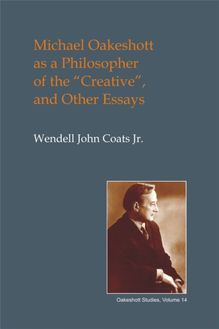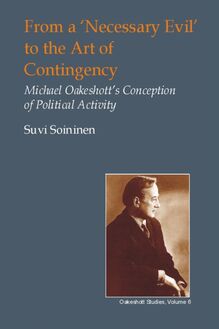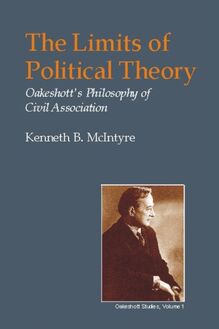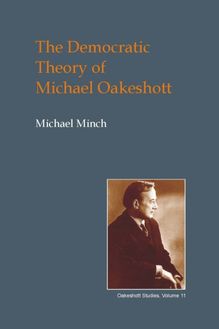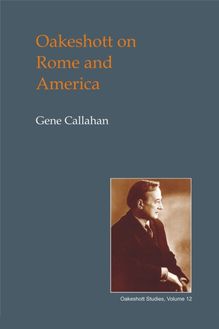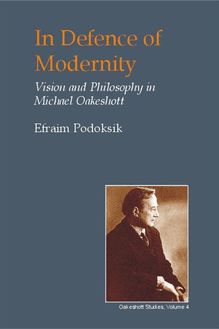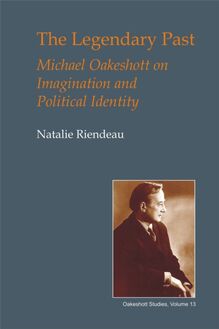-
 Univers
Univers
-
 Ebooks
Ebooks
-
 Livres audio
Livres audio
-
 Presse
Presse
-
 Podcasts
Podcasts
-
 BD
BD
-
 Documents
Documents
-
- Cours
- Révisions
- Ressources pédagogiques
- Sciences de l’éducation
- Manuels scolaires
- Langues
- Travaux de classe
- Annales de BEP
- Etudes supérieures
- Maternelle et primaire
- Fiches de lecture
- Orientation scolaire
- Méthodologie
- Corrigés de devoir
- Annales d’examens et concours
- Annales du bac
- Annales du brevet
- Rapports de stage
La lecture à portée de main
Vous pourrez modifier la taille du texte de cet ouvrage
Découvre YouScribe en t'inscrivant gratuitement
Je m'inscrisDécouvre YouScribe en t'inscrivant gratuitement
Je m'inscrisEn savoir plus
Vous pourrez modifier la taille du texte de cet ouvrage
En savoir plus

Description
Sujets
Informations
| Publié par | Andrews UK |
| Date de parution | 04 juillet 2012 |
| Nombre de lectures | 0 |
| EAN13 | 9781845404383 |
| Langue | English |
Informations légales : prix de location à la page 0,1124€. Cette information est donnée uniquement à titre indicatif conformément à la législation en vigueur.
Extrait
Title page
OAKESHOTT ON ROME AND AMERICA
Gene Callahan
Copyright page
Copyright © Gene Callahan 2012
The moral rights of the author have been asserted.
No part of this publication may be reproduced in any form without permission, except for the quotation of brief passages in criticism and discussion.
Originally published in the UK by Imprint Academic
PO Box 200, Exeter EX5 5YX, UK
Originally published in the USA by Imprint Academic
Philosophy Documentation Center
PO Box 7147, Charlottesville, VA 22906-7147, USA
2012 digital version by Andrews UK Limited
www.andrewsuk.com
imprint-academic.com/idealists
Acknowledgements
The author would like to thank David Boucher, Bruce Haddock, James Connelly, Peredur Roberts, Colin Tyler, Katherine Raymond, Noel O’Sullivan, Linda Feldman, Rosalind Davies, Jake Kawatski, Julian Velard, the members of the NYU Colloquium on Market Institutions and Economic Processes, Chris Rolliston, Dan Klein, Jeffrey Rogers Hummel, and George Selgin for generously offering their helpful comments on earlier drafts of this manuscript. This work is largely based on my doctoral thesis written at Cardiff University and completed in 2010, also titled Oakeshott on Rome and America .
In all instances, if emphasis is used in a quotation, it is in the original, unless specifically stated as otherwise.
Introduction
When Montesquieu and the framers of the American Constitution articulated the conception of a limited constitution that had grown up in England, they set a pattern which liberal constitutionalism has followed ever since. Their chief aim was to provide institutional safeguards of individual freedom; and the device in which they placed their faith was the separation of powers. In the form in which we know this division of power between the legislator, the judiciary, and the administration, it has not achieved what it was meant to achieve. Governments everywhere have obtained by constitutional means powers which those men had meant to deny them. (Hayek, 1973: 1)
On July 19, 2005, a Sunni Muslim who was working on drafting Iraq’s new constitution was gunned down outside a restaurant in Baghdad, along with two companions. This was apparently the fulfillment of the threat by Sunni militants to kill any Sunni Muslim cooperating with the Shi’ite majority in creating the document. The same day, 13 people died in an attack on a bus taking workers to a U.S. base. This followed a weekend in which ‘scores of people lost their lives’ in ‘a series of bombings’ (BBC News, July 19, 2005), including 98 in a truck bombing at a Shi’ite mosque.
For the year 2005 well over 30,000 insurgent attacks were recorded, killing many thousands of Iraqis and hundreds of American and British soldiers. The new constitution was ratified on October 15, 2005, but the violence continued to escalate, with the murder rate in Baghdad, by early 2006, estimated to have tripled over two years (Finer, 2006). At the end of that year, 14 months after the Iraqi Constitution was ratified, the Pentagon reported attacks on American forces were at an all-time high (Suarez, 2006). Even four years after the constitution was adopted, its existence seemed to make little difference; as Steven Lee Meyers reported in The New York Times :
Instead, Iraqis treat their Constitution - like the benchmarks - the way they treat what few traffic lights operate here.
‘So what?’ a Kurdish lawmaker, Mahmoud Othman, said when asked about the risk of holding the election later than the Constitution demands. ‘Nothing in Iraq is very legitimate.’ (Meyers, 2009)
In the midst of such carnage, which some termed ‘civil war’, and the obviously deep divisions in Iraqi society at its root, what led the Anglo-American occupying force to place such faith in the efficacy of a written constitution as a palliative for these troubles? The answer, I suggest, lies in the continuing popularity of ‘rationalism in politics’, a phrase taken from the most widely known work of the British philosopher and political theorist Michael Oakeshott: his 1947 essay ‘Rationalism in Politics’. [1] So, let us begin by examining what Oakeshott meant by the phrase.
What is rationalism in politics?
In his works on rationalism, Oakeshott criticizes the belief that the optimal, indeed, the only intellectually defensible method for choosing public policies and settling on general principles of governance is first to set aside all of the prejudicial influence of existing practices, wiping clean the mind to create a tabula rasa in which pure, abstract reasoning can generate universally valid political truths, and then to mold actual political practice to fit those ideals. As the ‘politics of perfection’, rationalism considers any concession made to existing institutions or practices that results in deviation from the ideals to be, for the rationalist, a betrayal of reason arising from an atavistic and deplorable attachment to one’s prejudices. Oakeshott contends that this conception of what constitutes ‘rational’, and thereby commendable, conduct has dominated modern European thought, and in particular European political theory and practice, since the time of the Enlightenment.
However, Oakeshott argues that, far from being the best way to direct political activity, the rationalist program does not offer even a possible way to proceed. He sees it as springing from a fundamental misconception of the relationship between explicitly formulated rules and techniques and the concrete activity to which they apply. Such technical guidelines, he holds, are never generative of a form of practice, but instead only arise through practitioners coming to reflect upon an activity in which they are already engaged. Formal techniques and rules, although often of great utility, are never more than a highly abstract sketch of the rich vision that the skilled practitioner has of his field of expertise.
Although the rationalist must always fall short of living up to his own standard, Oakeshott contends that his attempts to realize his ideals can still cause great mischief. A society under the spell of the rationalist charm will, in seeking to cope with novel difficulties, tend to neglect the resources with which its own political tradition might address these situations in stride, and instead will wind up staggering erratically forward, drawn this way, then that, by the promises to fix all its troubles that are offered by a succession of rationally devised schemes.
The alternative to rationalist politics presented by Oakeshott could be called ‘practical politics’. This should not be understood as signifying an unwavering adherence to the current arrangements simply because of their existence, or the impossibility that reflection on present practices could point to ways of improving them. Rather, it suggests that the most promising path for genuine political reform lies in pursuing the ‘intimations’ of improvement already contained in what now exists. In describing Aristotle’s - and, I believe, his own - conception of the proper role of the practically oriented political thinker, Oakeshott notes that Aristotle likened his task to that of a physician treating an ill patient. The physician’s job is to return the person to the healthy condition that it lies in his nature to enjoy, not to transform him into some other sort of being altogether.
Comparing the theory with some evidence
However inherently plausible or intuitively appealing Oakeshott’s thesis may be, I can see no reason not to expose it to further scrutiny by examining its applicability to actual political episodes. This work aims to investigate the history of two different republics, the Roman and the American, in regard to how closely these concrete polities conform to Oakeshott’s contrasting ideal types of the practical and the rationalist styles of approaching politics, and what evidence they provide supporting or undermining his thesis.
I suggest that this choice of ‘test cases’ promises to be particularly illuminating for two reasons: First, Oakeshott himself considered the Roman republic a notable exhibition of the practical style of politics, while offering the American founding as a prime example of the rationalist approach. Second, although the American founders drew great inspiration from their Roman predecessors, their fixation on the downfall of the Roman republic led them to abjure reliance on tradition, which had been the Romans’ foremost guide to proper political action, in favor of placing their confidence in a document deliberately constructed upon abstract principles held to be universally true and applicable in all circumstances, hoping, thereby, to create a more perfect republic, clad in armor shielding it from the forces that had finally ended the Roman experiment with self-governance.
A consideration worth stressing as we launch our inquiry is that no concrete polity should be expected to provide an unalloyed sample of these pure concepts. Oakeshott himself stressed that the constructs he utilized ‘as extremes ... are ideal’ (1996: 21). In order to remedy our natural susceptibility to the intellectual infirmity of cherry-picking just those events that support our abstract framework while passing over any inconvenient counterexamples, we periodically will call into question our hypothesis that our ideal types do more to advance than to hinder our understanding of the Roman and the American republics, by giving due consideration to how the actual histories of those two polities diverge from the theoretical constructs with which we have paired them.
An outline of this work
The remainder of this work will proceed as follows:
Chapter 1 will explore Oakeshott’s concept of rationalism, and specifically rationalism in politics,
-
 Univers
Univers
-
 Ebooks
Ebooks
-
 Livres audio
Livres audio
-
 Presse
Presse
-
 Podcasts
Podcasts
-
 BD
BD
-
 Documents
Documents
-
Jeunesse
-
Littérature
-
Ressources professionnelles
-
Santé et bien-être
-
Savoirs
-
Education
-
Loisirs et hobbies
-
Art, musique et cinéma
-
Actualité et débat de société
-
Jeunesse
-
Littérature
-
Ressources professionnelles
-
Santé et bien-être
-
Savoirs
-
Education
-
Loisirs et hobbies
-
Art, musique et cinéma
-
Actualité et débat de société
-
Actualités
-
Lifestyle
-
Presse jeunesse
-
Presse professionnelle
-
Pratique
-
Presse sportive
-
Presse internationale
-
Culture & Médias
-
Action et Aventures
-
Science-fiction et Fantasy
-
Société
-
Jeunesse
-
Littérature
-
Ressources professionnelles
-
Santé et bien-être
-
Savoirs
-
Education
-
Loisirs et hobbies
-
Art, musique et cinéma
-
Actualité et débat de société
- Cours
- Révisions
- Ressources pédagogiques
- Sciences de l’éducation
- Manuels scolaires
- Langues
- Travaux de classe
- Annales de BEP
- Etudes supérieures
- Maternelle et primaire
- Fiches de lecture
- Orientation scolaire
- Méthodologie
- Corrigés de devoir
- Annales d’examens et concours
- Annales du bac
- Annales du brevet
- Rapports de stage
